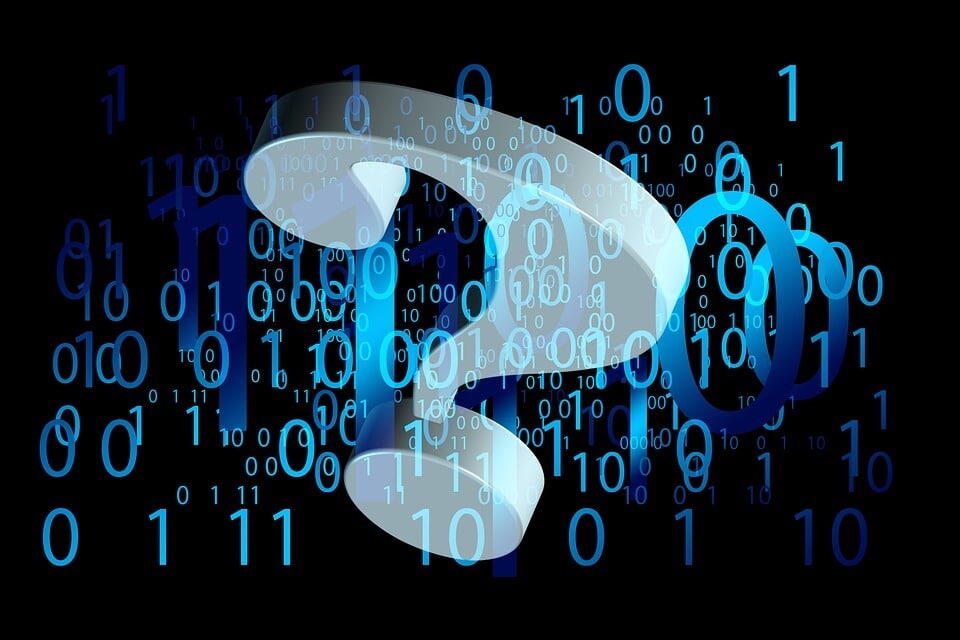The developer of RegCleaner, jv16 PowerTools, Uninstalr, WinFindr, Startup Timer, ScreenshotX, System Examiner and Windows Update Fixer.
Free software can be dangerous, but what can you do about it? Legitimate methods to protect our computers and smartphones have changed in recent years. Malware is becoming more sophisticated. Revelations by Edward Snowden and Wikileaks show us that cyber criminals constantly invent new ways to spy on us.
We have seen banking malware that intercept SMS messages to get authentication keys for each transaction. There is also software that takes advantage of bugs and security holes to sneak even through encrypted connections.
Good maintenance of your computer can be achieved by performing various tasks. Cleaning your hard drive, cleaning the Windows registry, updating drivers. Some of these tasks are laborious and for users with less experience, they can be complicated.
For these reasons, protecting and managing the security of your computer can quickly become a nuisance.
For those who have difficulties in doing so, or do not want to waste time by complicating their life, there are programs that can do one, several or all maintenance tasks – automatically.
Relationship between malware and free software
Viruses are the most widely known threat to computers, laptops, and devices. They can cause all kinds of damages. There are different types of viruses and each has the ability to compromise your device(s) in different ways.
Usually, users get malware by downloading dubious software. Such software falsely appears to be other things. Remember that ‘YouTube downloader’ you got for free? Usually they are are nothing more than a scam. And they don’t come alone! Meaning, more potentially unwanted programs usually download in the background.
You may think that you know what you are doing and that you will not download infected files or visit misleading websites. However, it is important to remember that cyber criminals are creating new social engineering tactics every day.
Such software can drastically slow down your computer’s processing speed. It can display ads from other vendors or even send out logs of your complete computing activity, including passwords and private chat logs.
Some will even power on your camera. In some cases, they may even cause irreparable physical damage to the system.
The importance of an antivirus
Remember this: if a product is free, then in some way your personal data is the product!
Currently, it seems indispensable to have an antivirus installed. Whether as a free or paid software, having the protection of an antivirus seems the ‘de facto standard’ as the number of viruses and virtual pests grow daily.
These programs help keeping your operating system, data, and personal files secure. Some antiviruses include a firewall which helps to create a barrier between your computer and the rest of the Internet.
There are several antivirus vendors on the market, and the existing “types” of antivirus fall into three categories:
- Paid antivirus software: you must purchase the license to use the software (considerations: cost)
- Free antivirus software: can be installed and used without restrictions (considerations: your personal data is usually collected by the antivirus company for research purposes)
- Online: it can be paid or free. It does not need to be installed, but you need to be connected to the Internet (considerations: inefficient at detecting evasive malware)
By comparing free and paid antivirus, they seem respond in much the same way in some virus testing. Maybe antivirus tests of today are not really unbiased or maybe they all deserve to reach the finish line first.
The online antivirus is being used more and more, but it should not be a substitute for the previous ones. Although they can be used as an extra method of verification, most web based (online) anti-malware solutions of today fail to detect evasive malware.
Problems related to free software
Free software is simply software that you install on your computer free of charge, deliberately or not. For example, it may be a game that you installed on your computer, a free program that helps you control your expenses or lose weight.
Free software can be presented in various ways, including on CD or as a download from a website. At present, in addition, some free programs adopt another name: applet or widget.
What about security? Well, some free programs are safe and some are not. Often, it depends on its origin. Free software lacks some of the standard features that we generally expect any software to include, such as technical support, bug fixes, downloadable patches and virus definitions, among others.
Perhaps tech savvy users will understand and assess the risks of using free software. Most of us, however, will not want to expose their computers, files, and personal information to potential dangers.
When it comes to free software, you better be careful. Free programs you download over the Internet may contain malicious code that can cause damage to your computers or mobile devices. It could cause incompatibilities with other programs, take control of the computer or compromise your personal data and expose you to potential identity theft.
Not everything that is free is good!
Free software, also known as “freeware“, are increasingly accepted for use on mobile devices because they are easily accessible over the Internet. But accessing zero-cost programs also has a downside. The saying “quality and price go hand in hand” could be applied to free programs.
There is free software that claims to protect your computer, files, and information against online threats. But experts advise caution.
Using free software as a security program is risky. It is recommended to investigate the company and its products before downloading. Even so, it may be safer to pay for protection and opt in for some of the most consolidated security software.
How do you protect yourself from these threats?
Many users are content to install free software and think hey are protected. There is no doubt that basic protection of this type is better than nothing, but if this was enough, why does malware still find its way?
This question leads to another more interesting inquiry. How is a free antivirus different from a paid one? First, you have to leave behind old beliefs like “paid antivirus are expensive”.
In this life, almost nothing is free, not even on the Internet. Remember the old saying: “there is no free meal”. If the product is free, then the product is you.
Free software provides a basic protection service, true, but often includes advertising that is sometimes annoying or continuous warnings for you to upgrade to the paid version. More worrying are the cases that have jumped on the news: free antivirus sold usage data to third parties. Some even specify it in the contract of use.
With paid antivirus, there is no advertising and it is not trafficked with the data of use because it is a service acquired by the client. It is important to keep this in mind if you value not being interrupted by excessive notifications, or not being tracked for advertising purposes.
Main considerations
A. Performance and resource considerations
Analytical and comparative tests show that free software products consume more CPU and memory resources when compared to paid programs, slowing down the use of the computer. This is especially important if you have an old computer, where resources are scarce. If the antivirus makes your computer take a long time to boot or slow down, then you are paying, even if it is free.
B. Technology involved in developing free software
Not all antiviruses are the same, nor do they have the same protection systems or the same attack detection techniques.
Most free antivirus protects against known attacks, but they are not as effective at detecting new types of malware or new infection systems. It is a weakness that cyber criminals know and therefore continuously develop new types of malware created to circumvent the barriers of more known anti-virus.
Anti-virus software incorporates anti-exploit software that blocks the security holes of programs that users have not patched and an anti-keylogger, which prevents cyber criminals from tracking the passwords and personal data you enter when using the keyboard.
With the anti-phishing module, malware is prevented from supplanting the identity of a bank or Internet service, to steal your data.
C. Free software usually lacks customer care
An additional question to consider is something we do not value until we suffer the invasion of a virus or data theft: where to find an expert hand to help you out of the impasse?
Free software usually does not offer customer service. And in many cases, it comes with nasty surprises attached. If you have been infected by ransomware that has encrypted your hard drive, what do you do? Are you ready for such an event?
Or perhaps your phone has started to do strange things but the antivirus does not detect anything. Who do you go to?
Only in such situations is when you start to miss the customer care of a paid antivirus. This can help you recover your hijacked computer or detect if your equipment really has a virus.
Last but not least, an option is to ask for our help. We may not know everything but we do learn on a daily basis!
D. The cost of licensing quality software should not be an excuse
All this leads us to the main issue that always carries greater weight when it comes to choosing between a free software and a paid one. We speak, of course, of the price.
It is understandable that if you pay an amount of money for a smartphone or tablet (a little more if it is a computer), then you do not want to spend money on a security solution that accounts for 30% of the total expenditure.
Nowadays, it seems that installing a cleaning tool is a must have in a Windows environment. It is something that you should not leave aside. Even more if you are working with the computer all day.
Keep the operating system updated to the latest version. This will help to protect your machine’s security and stored data. In turn, the stability of the system may be somewhat less of what you expect after the new patches. These often cause new problems to surface (hence the development life-cycle).
Create a backup of your important files and keep the backup copy updated and safe.
These are just few of the many ways in which you can remain calm in the event of an incident.


